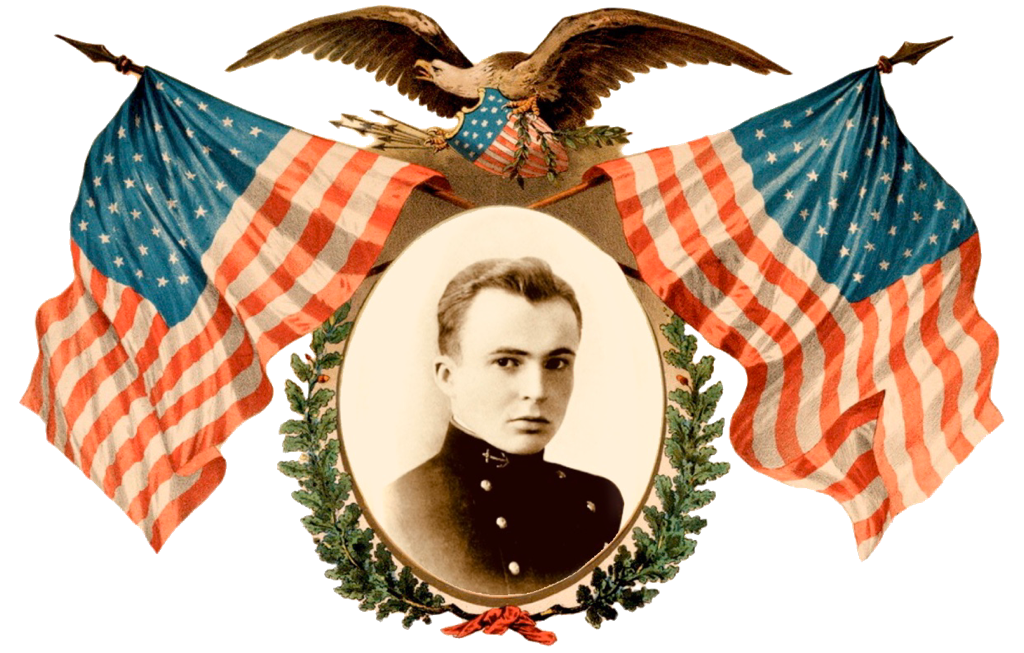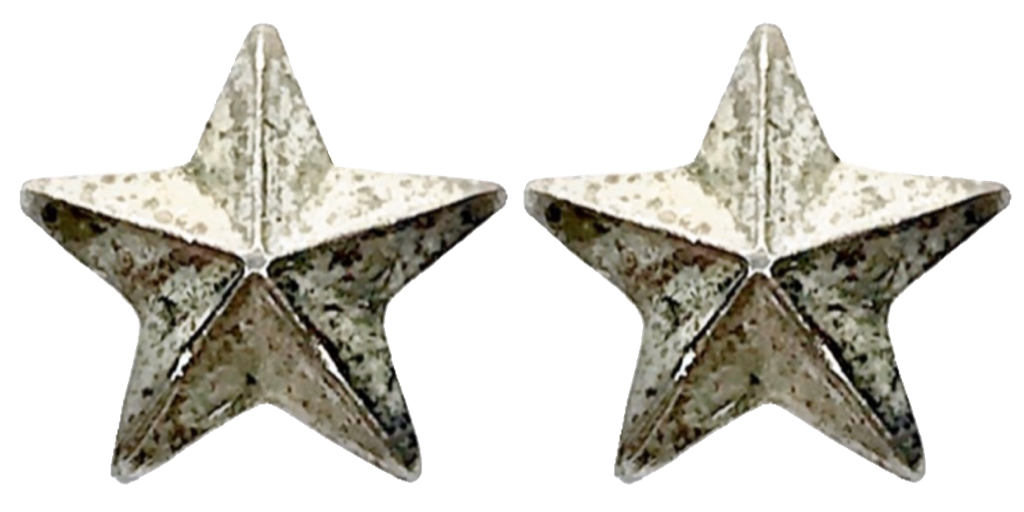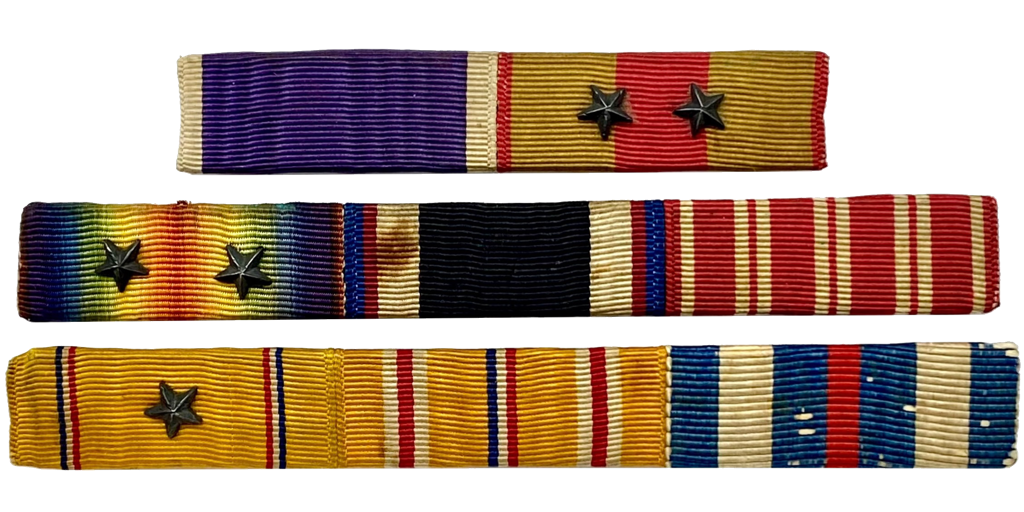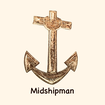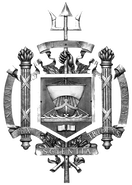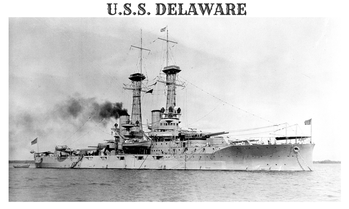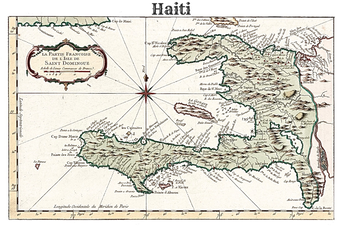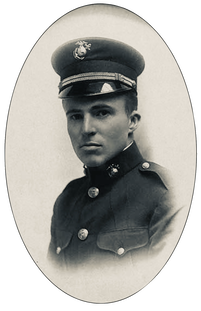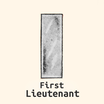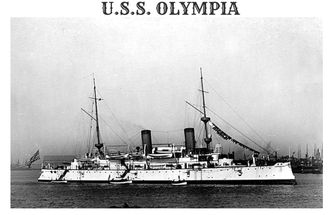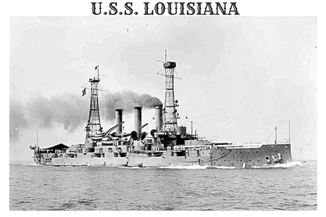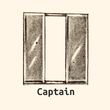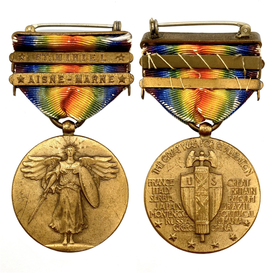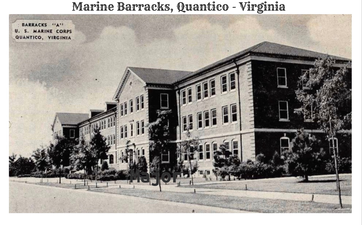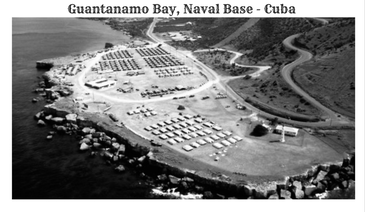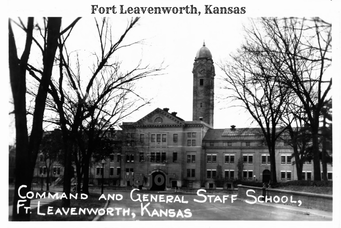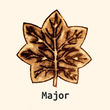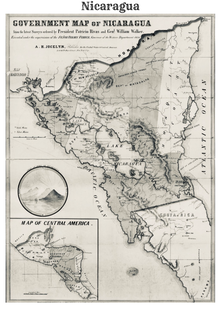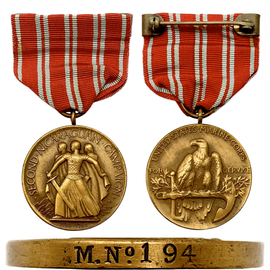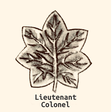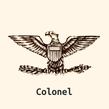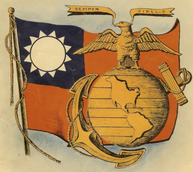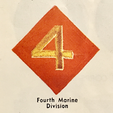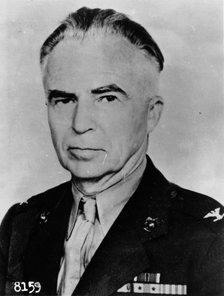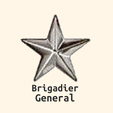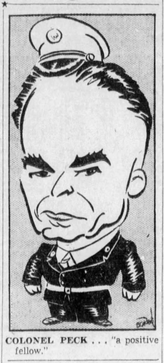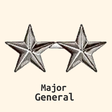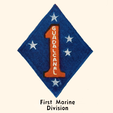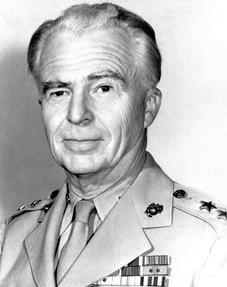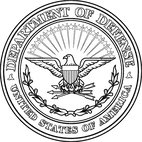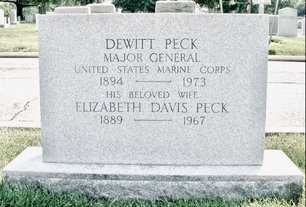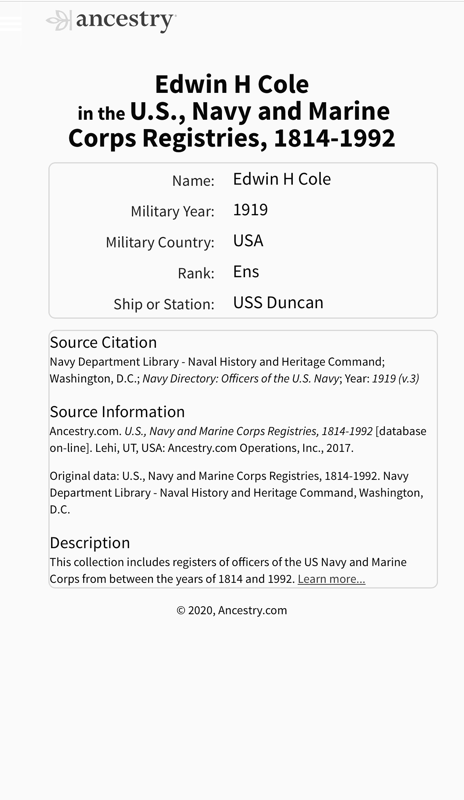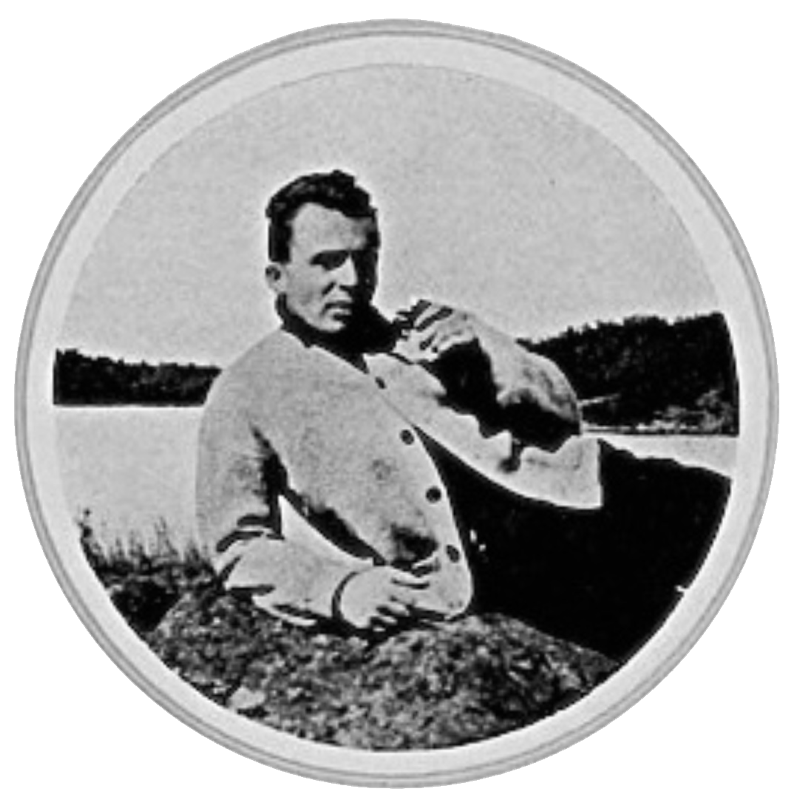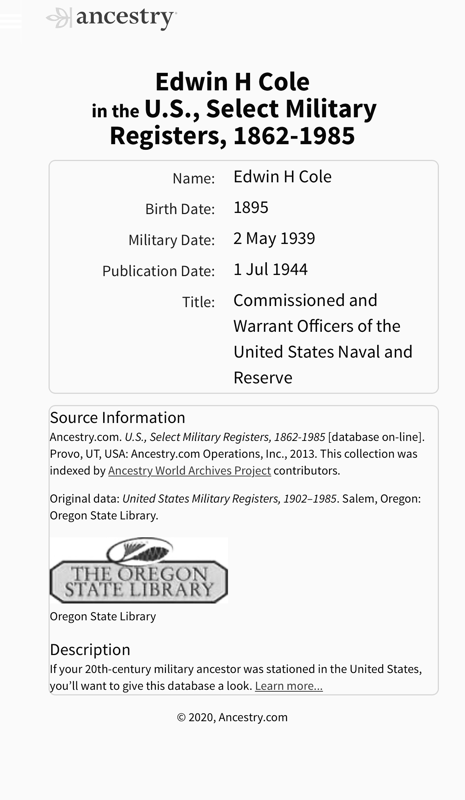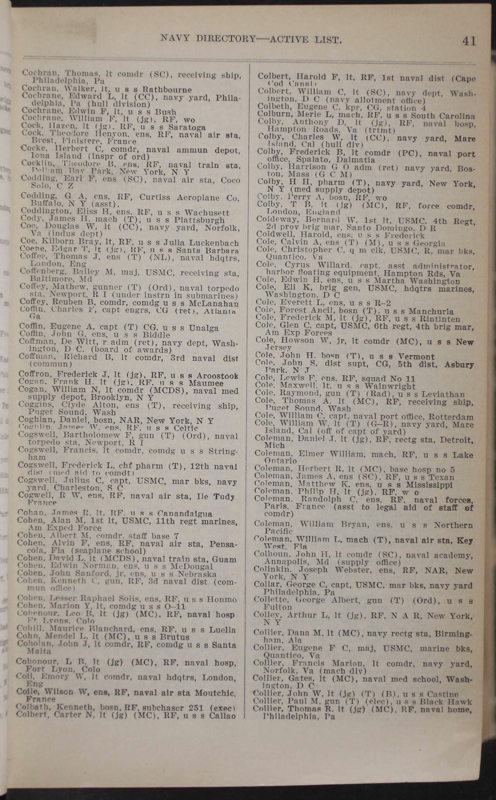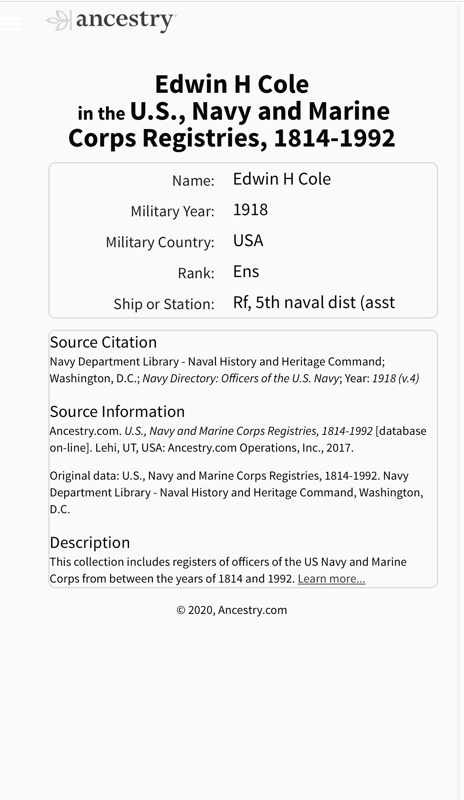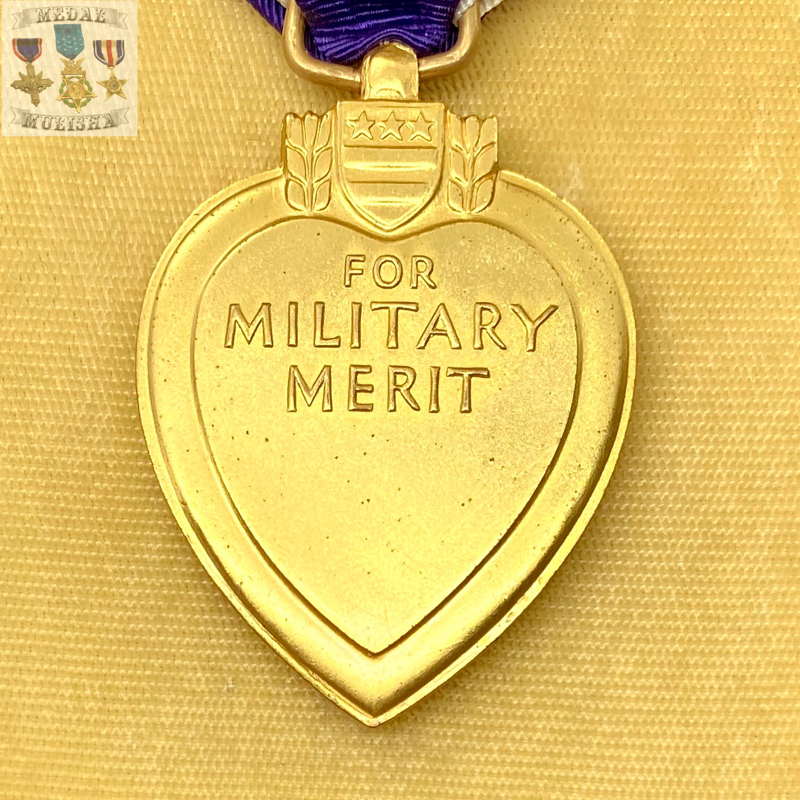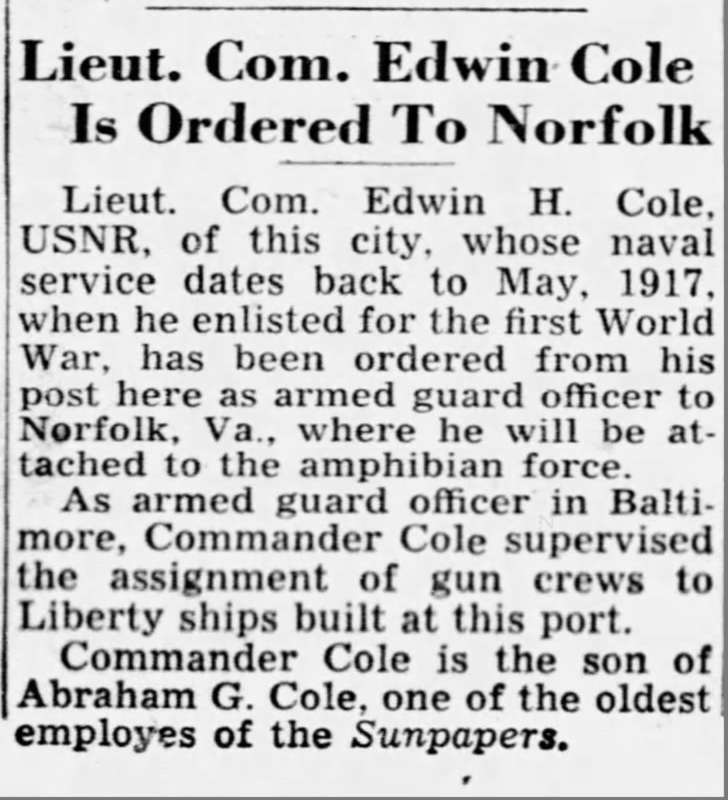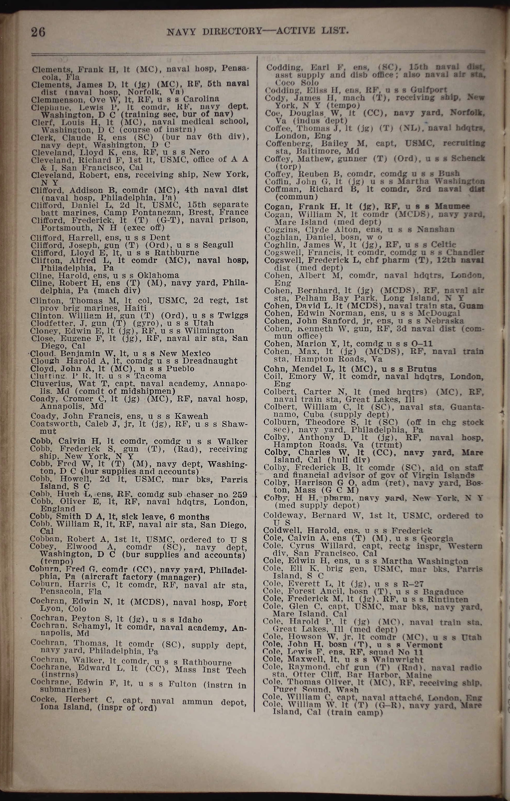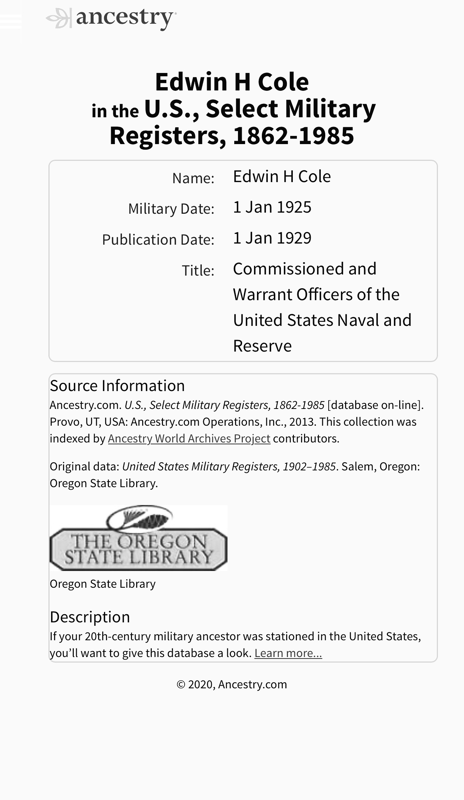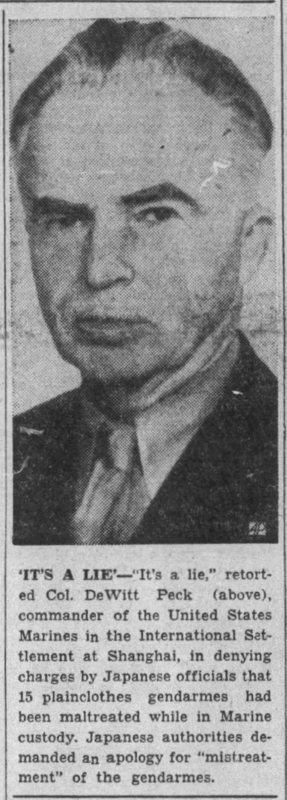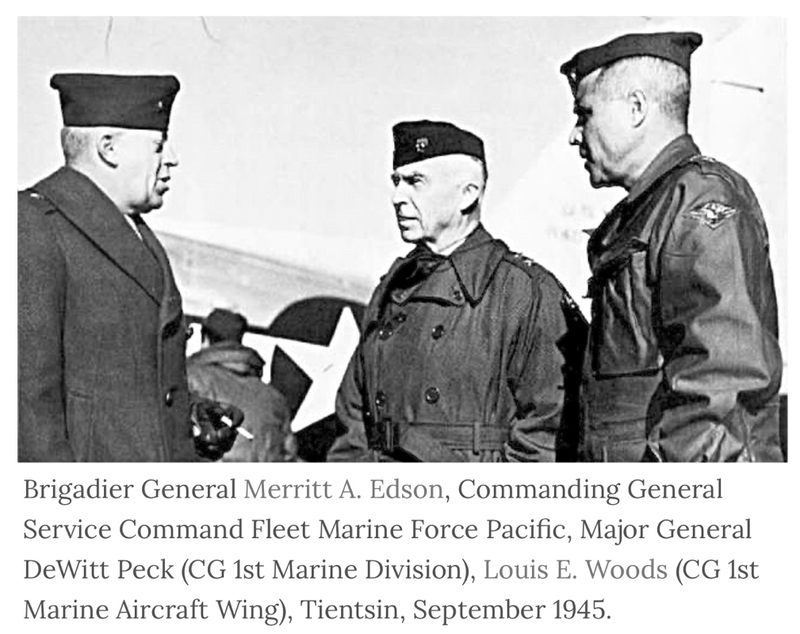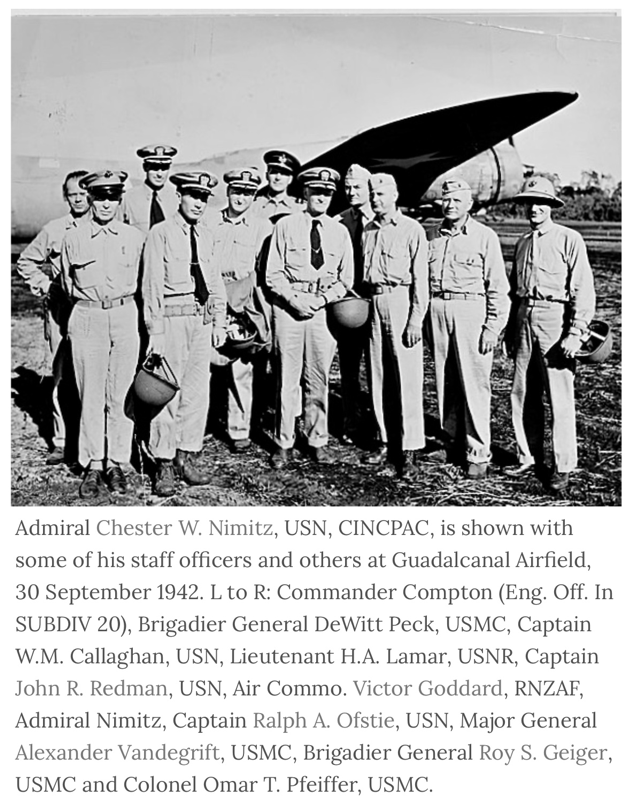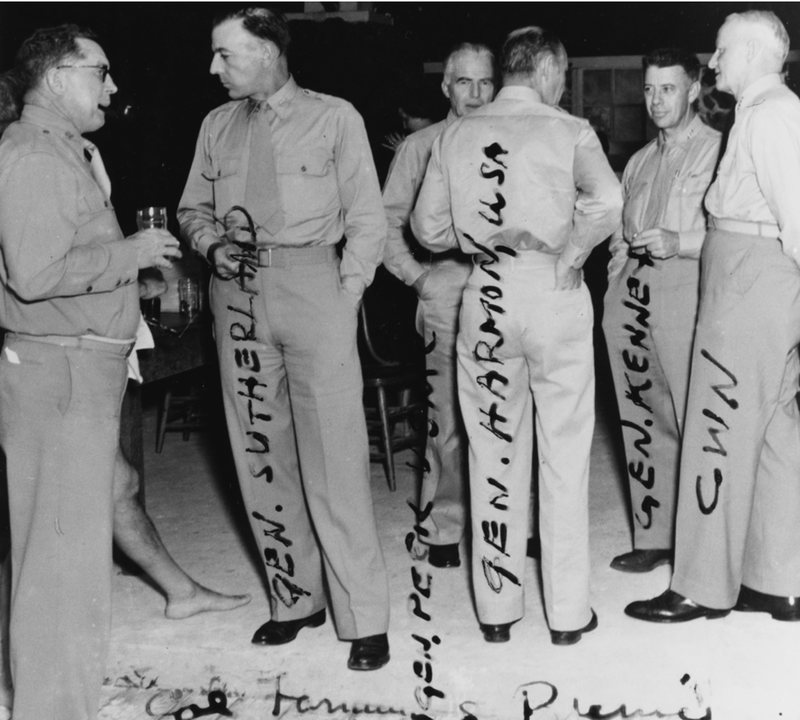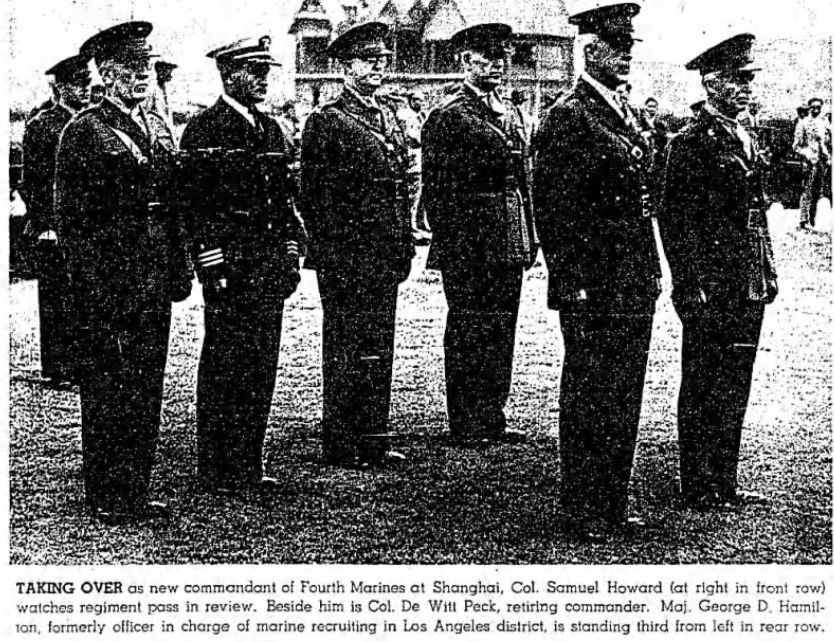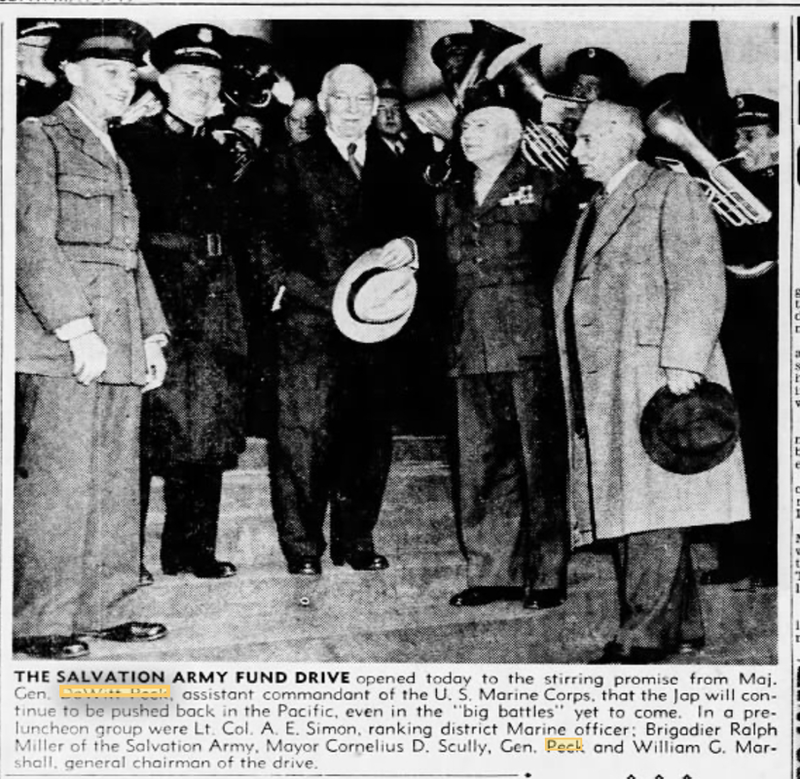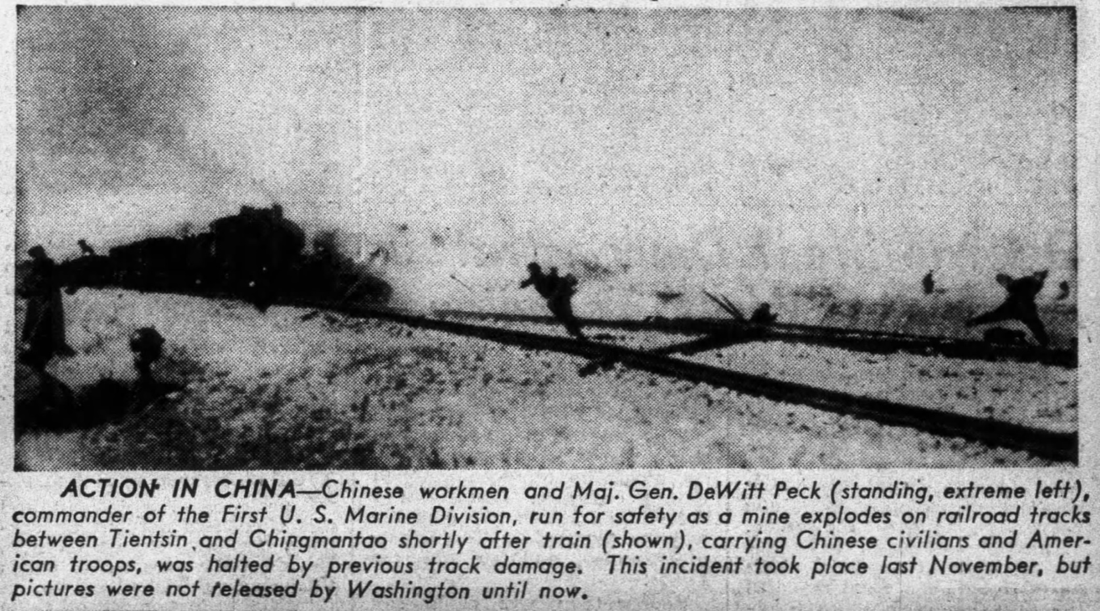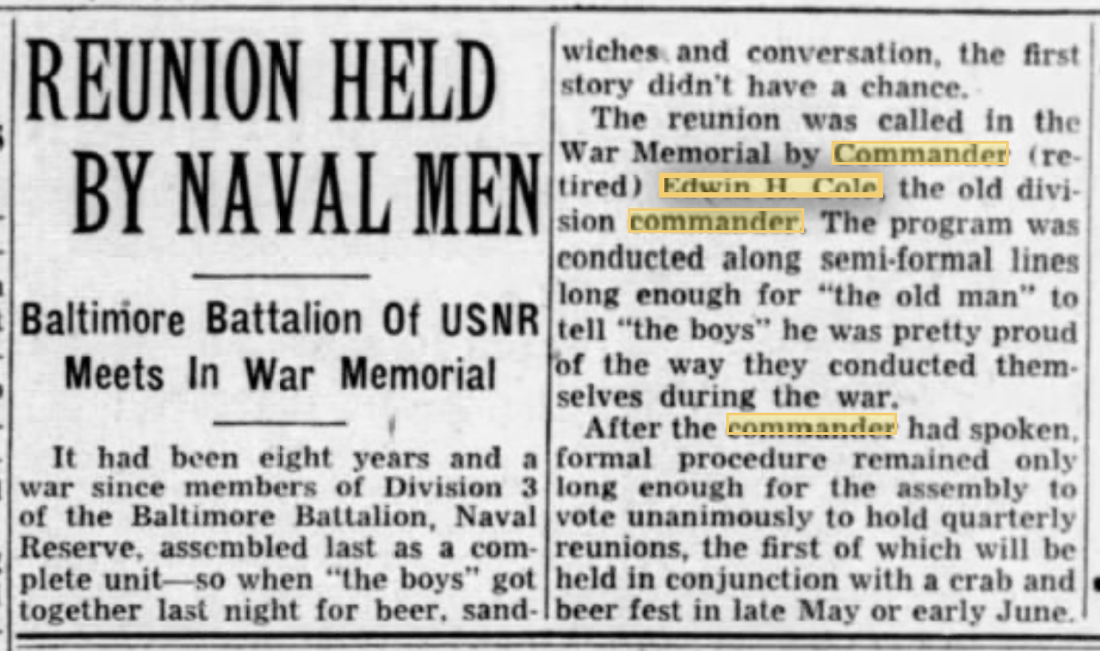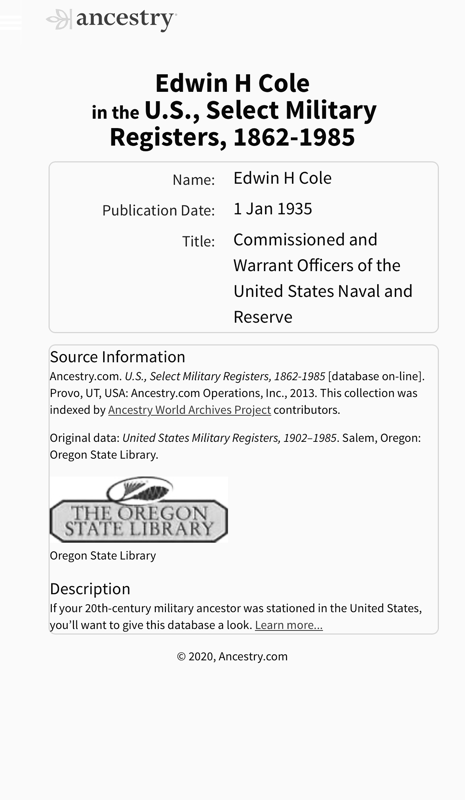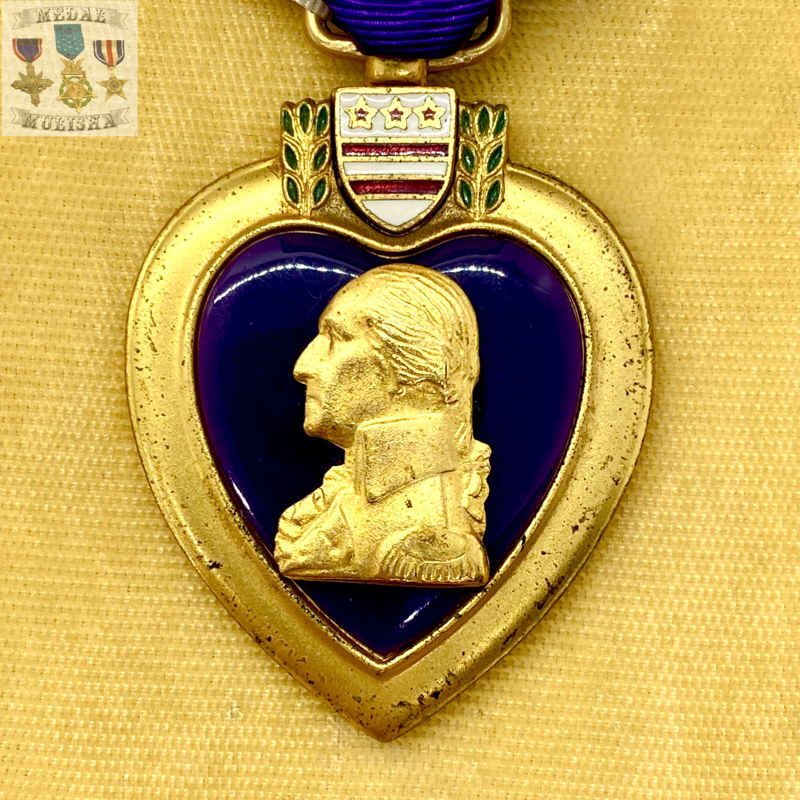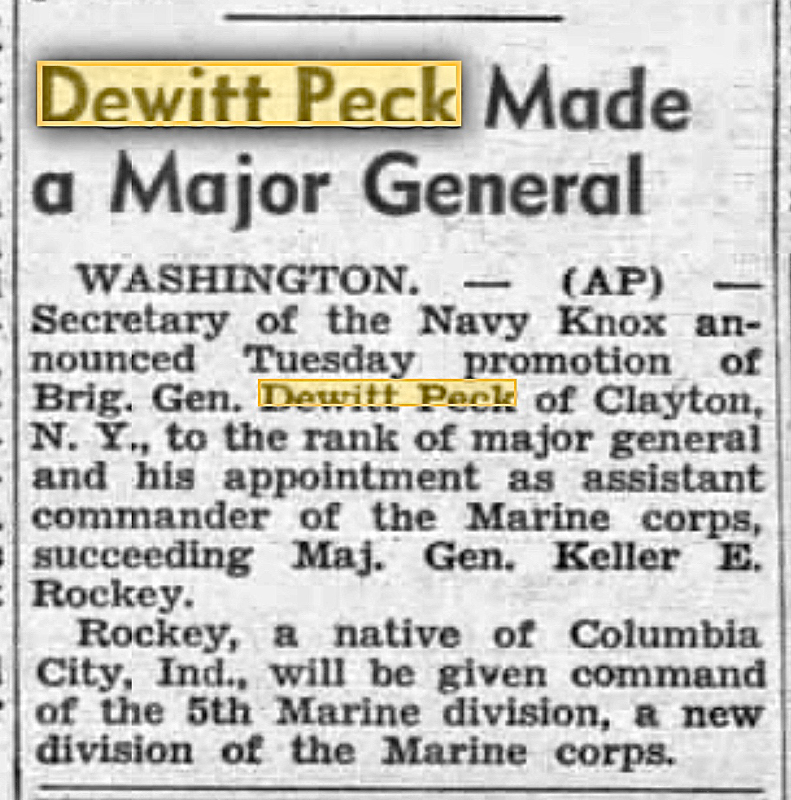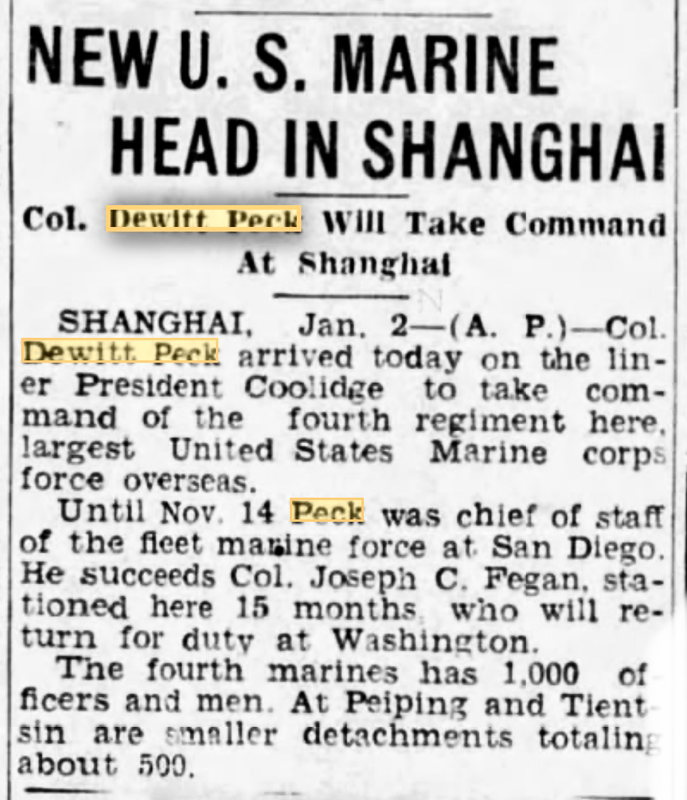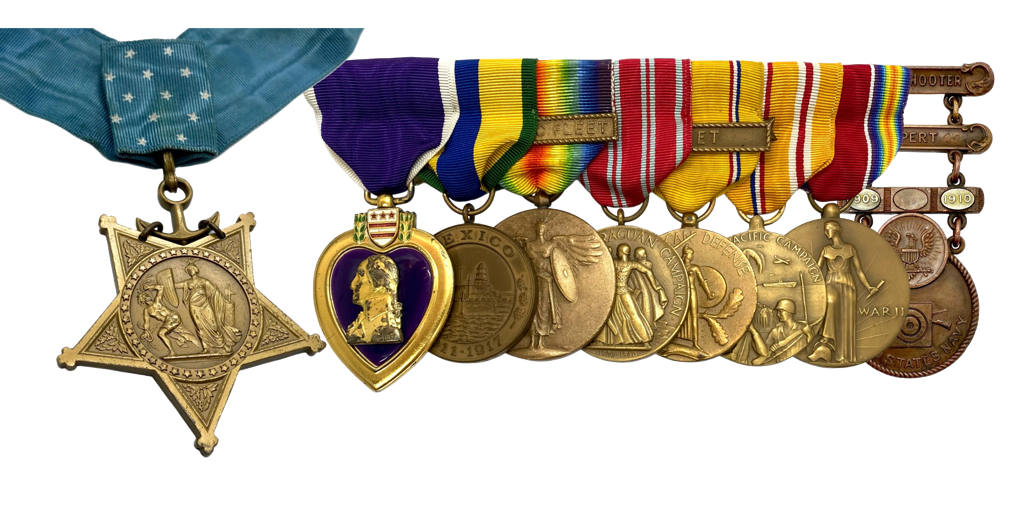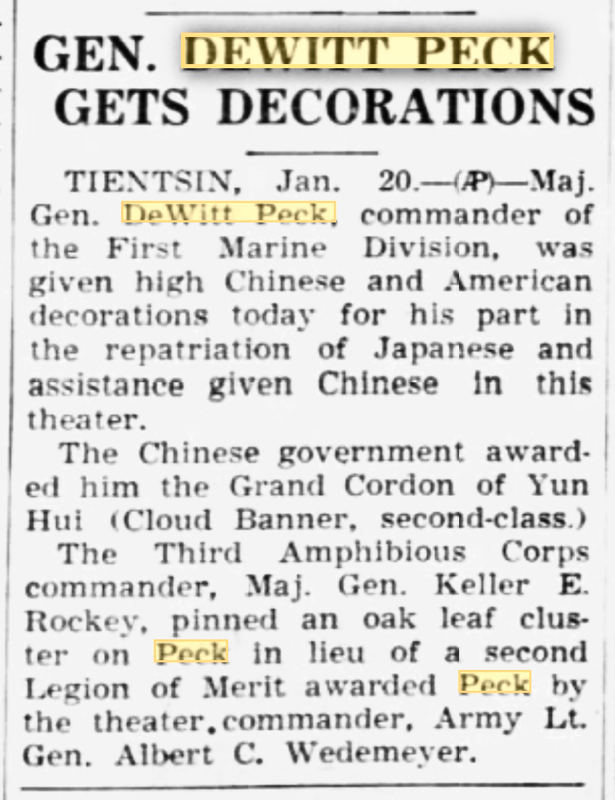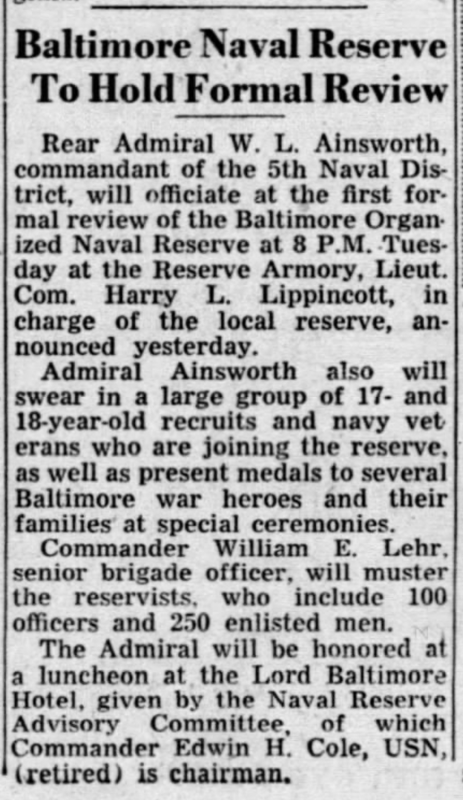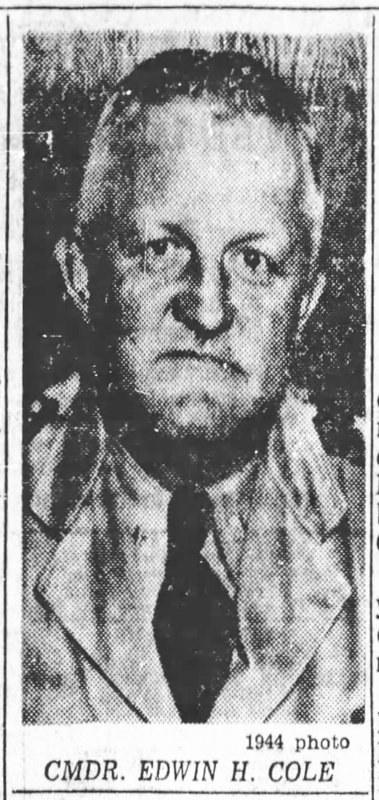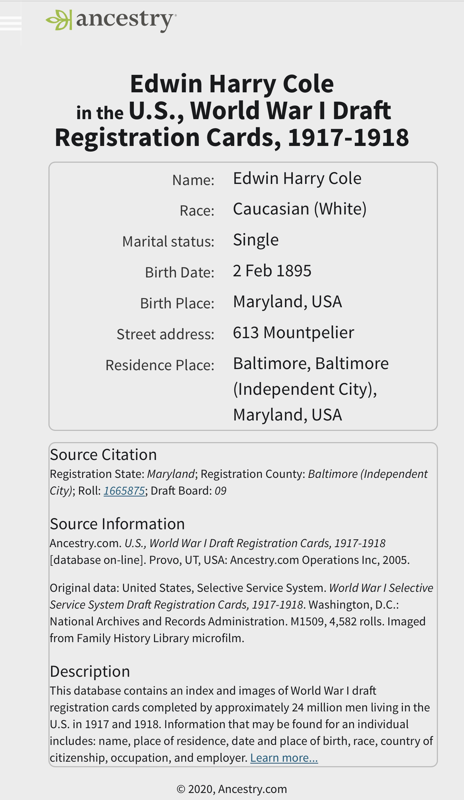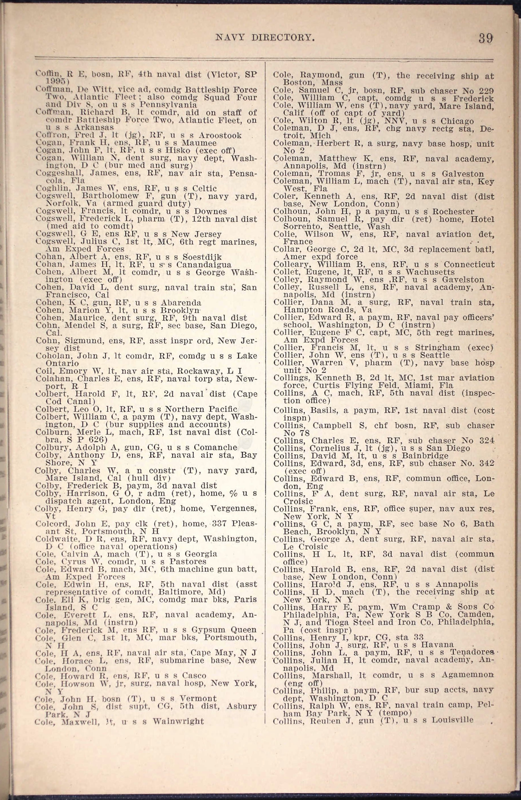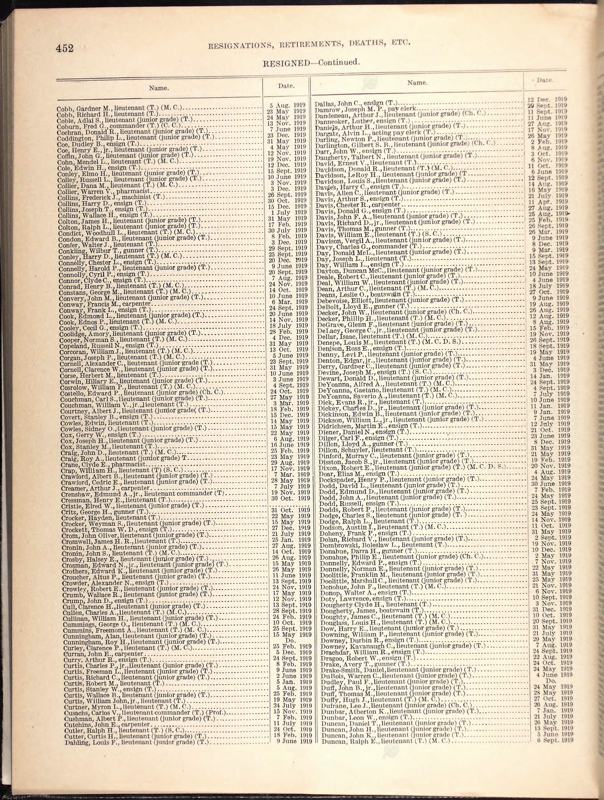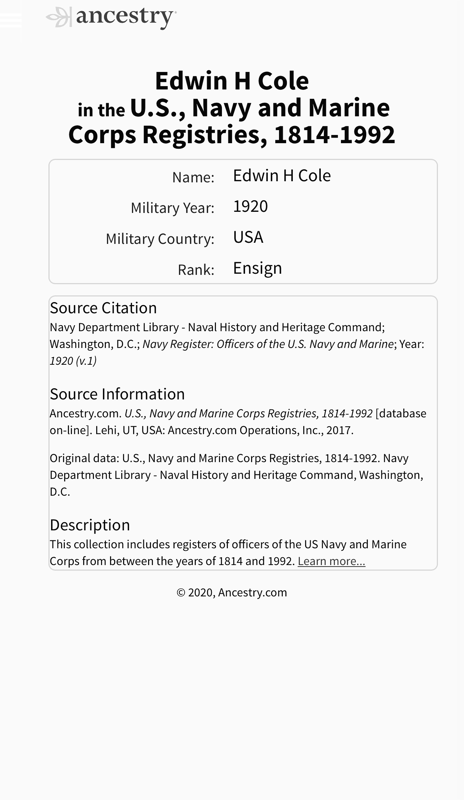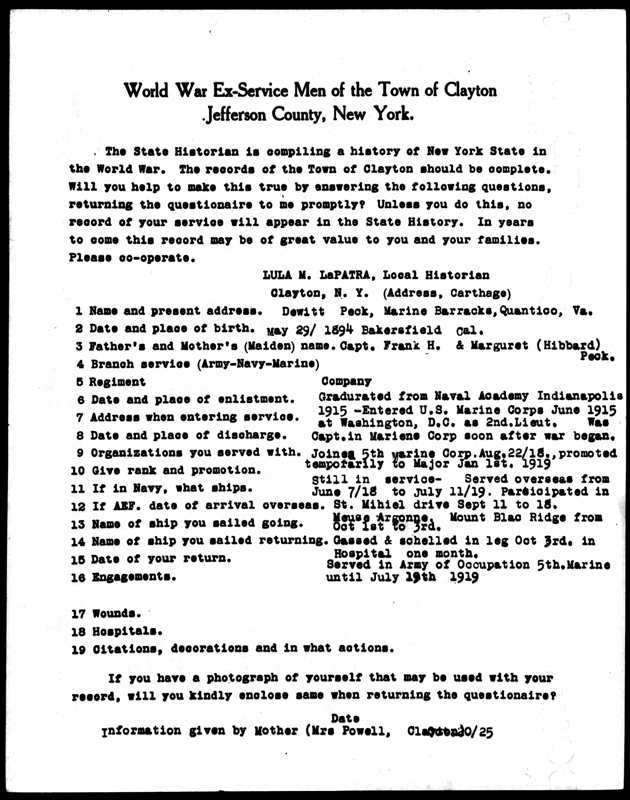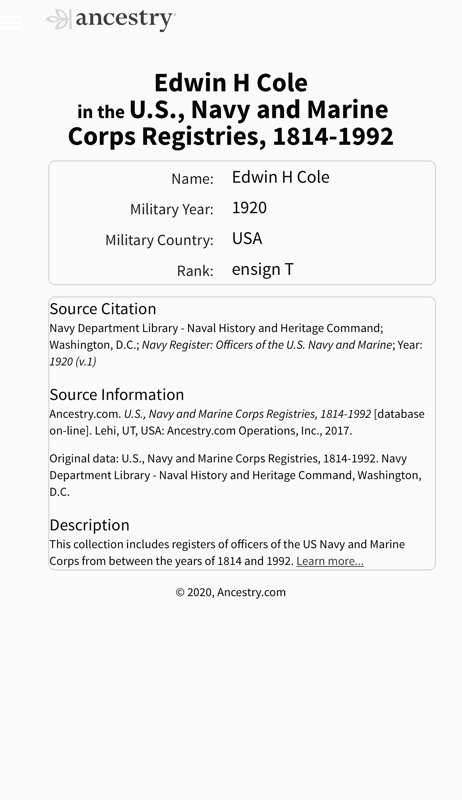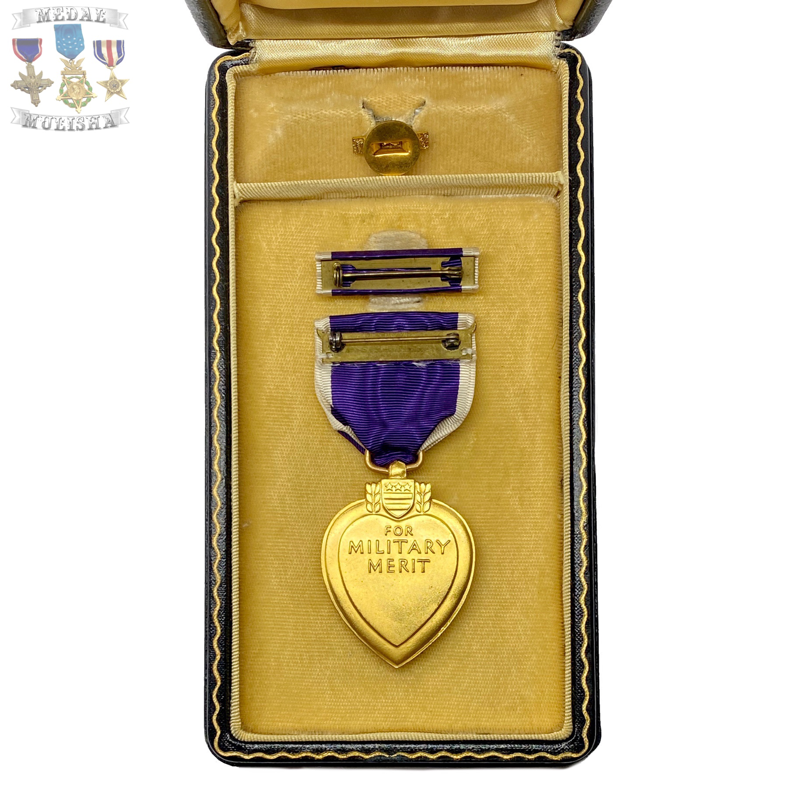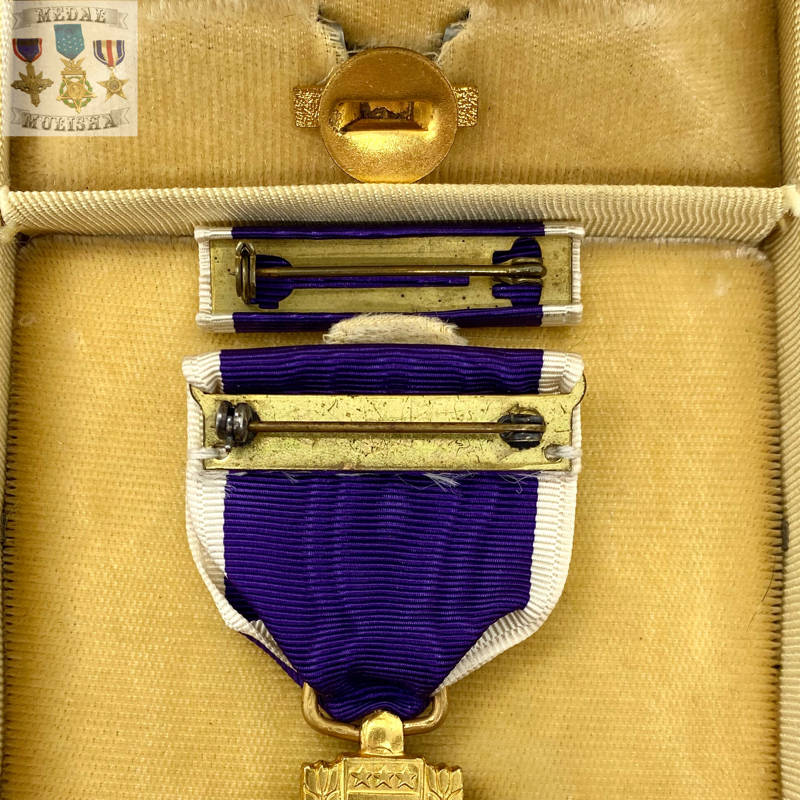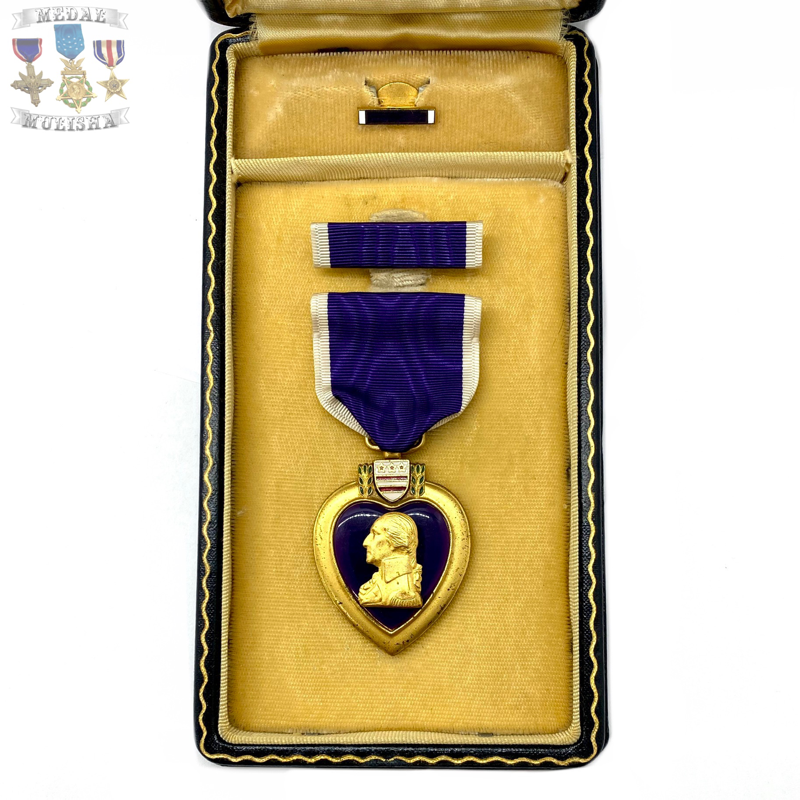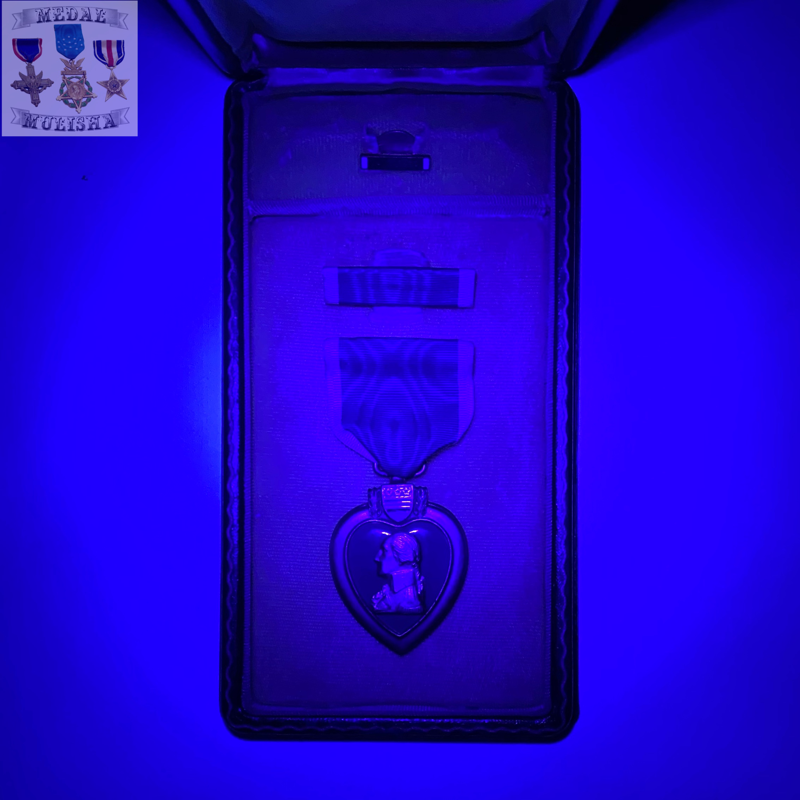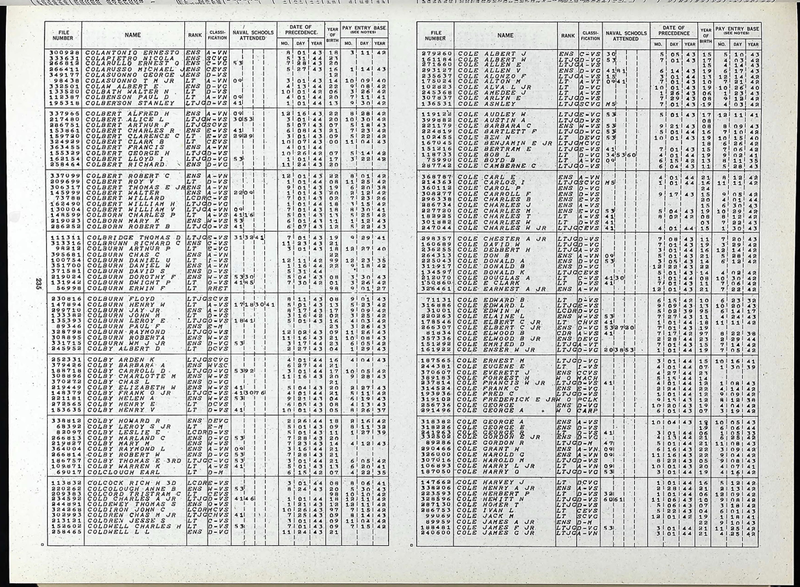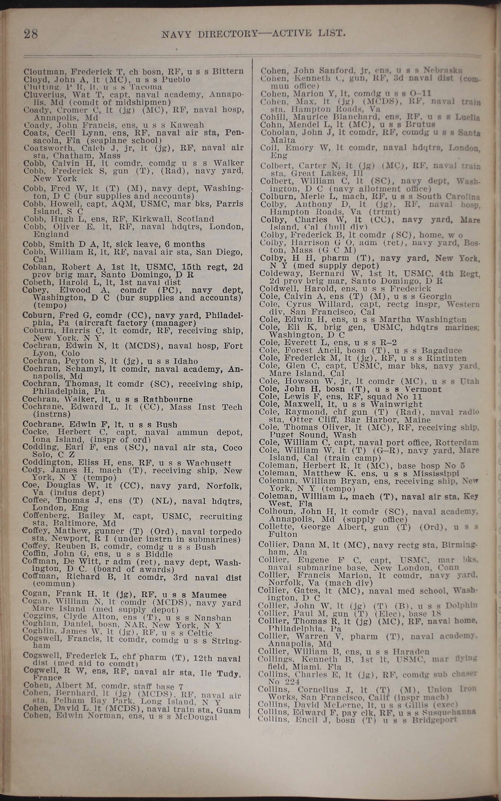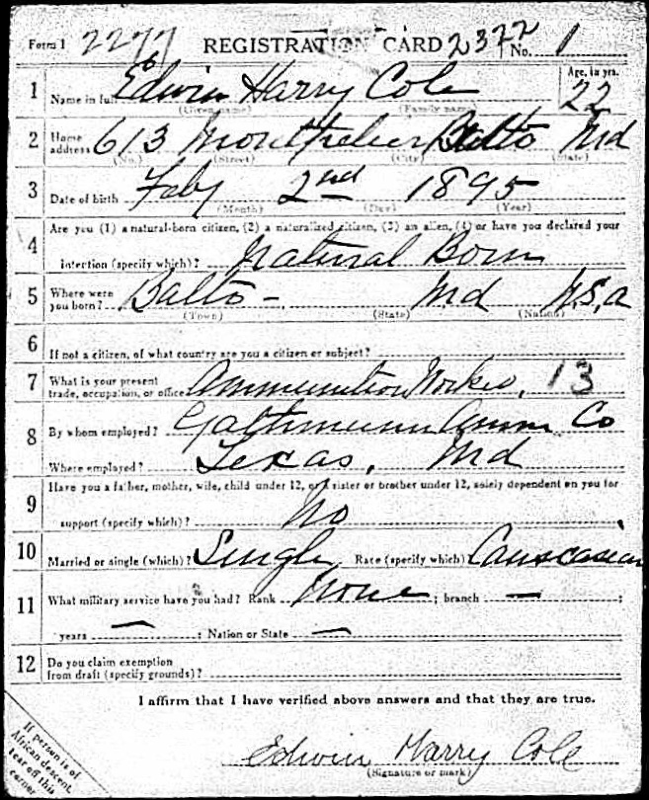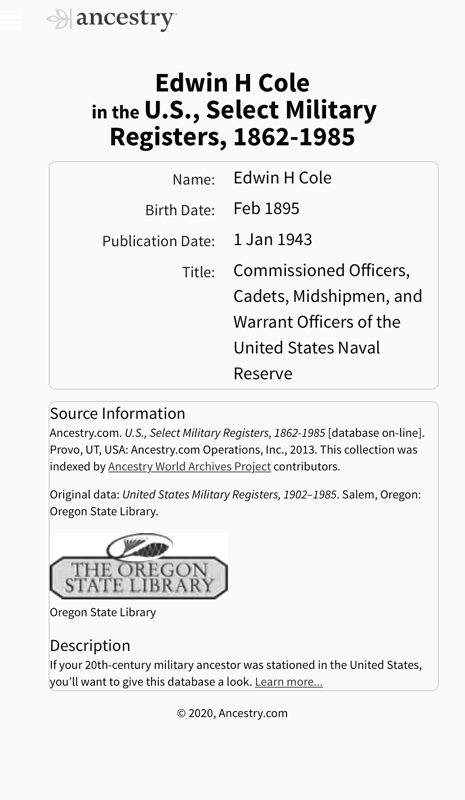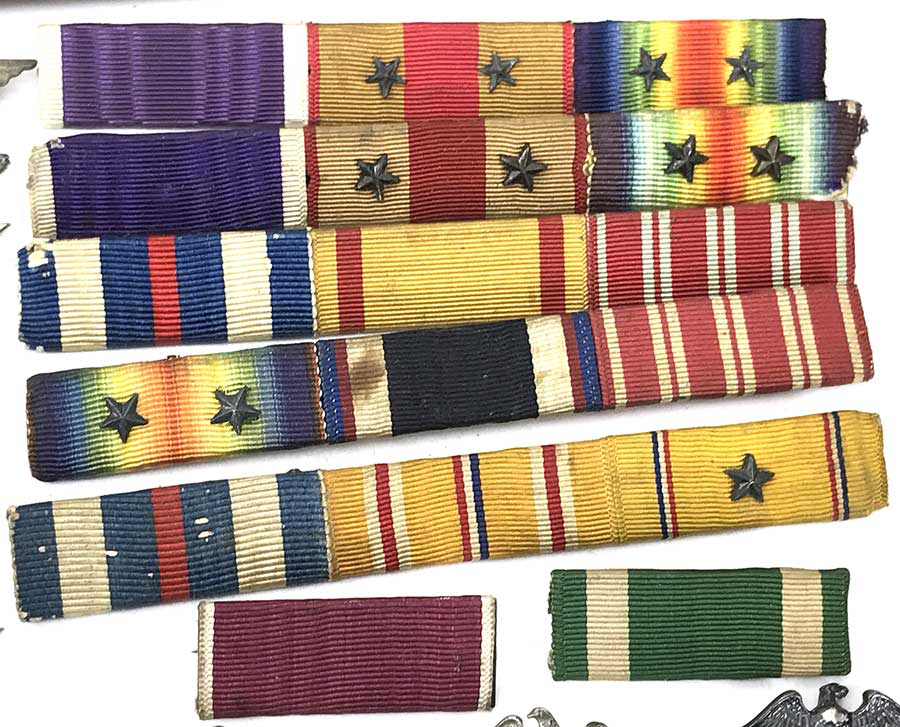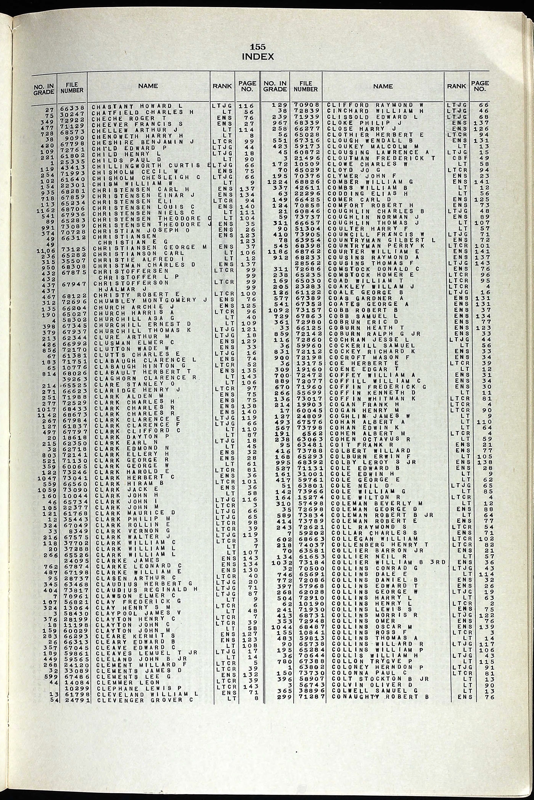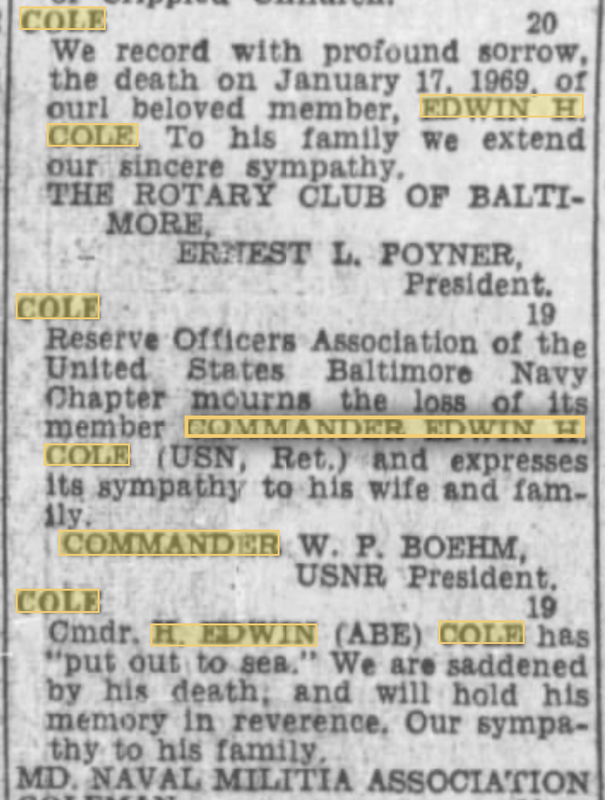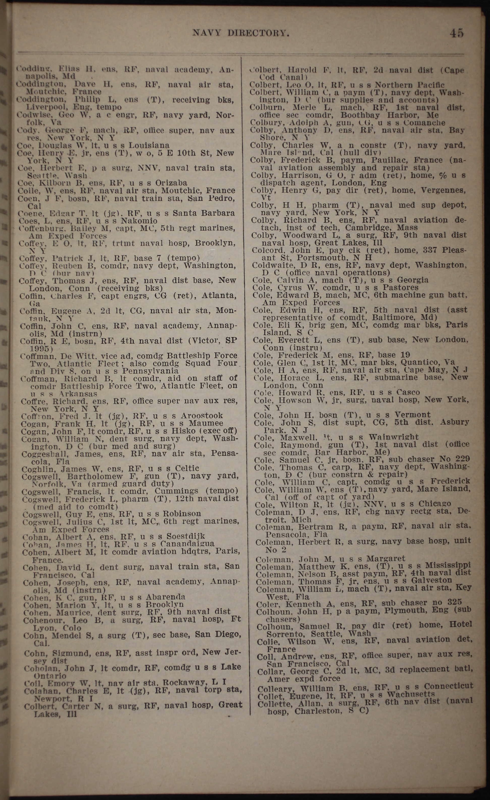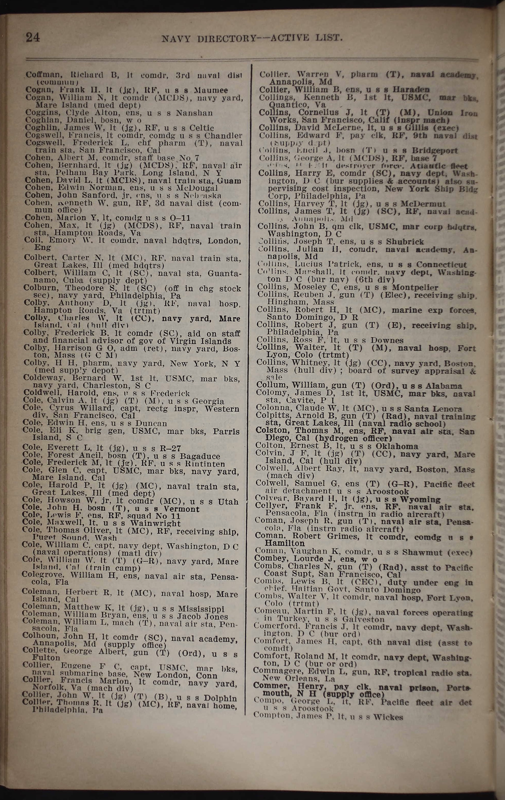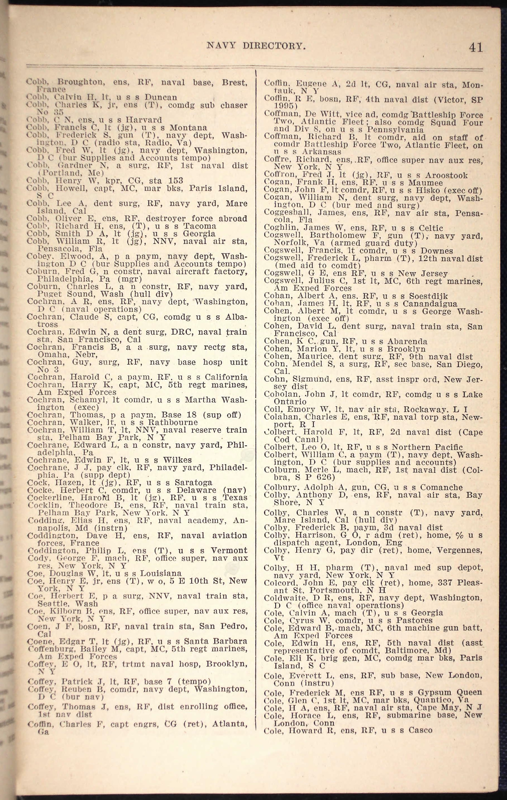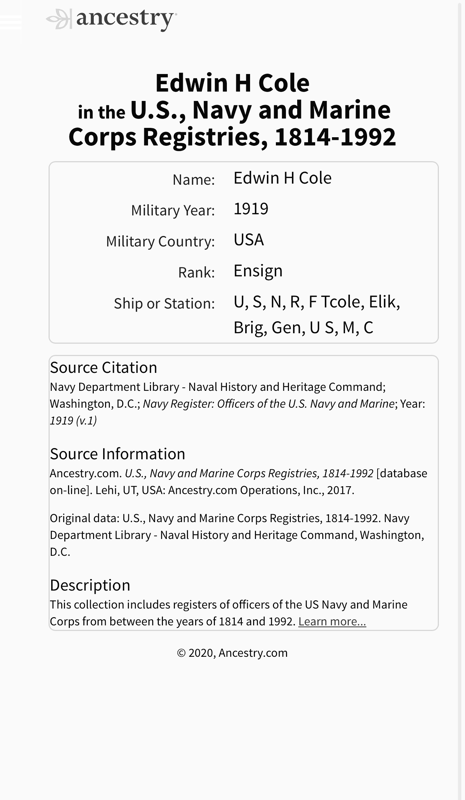Brigadier General Dewitt Peck
|
United States Marine Corps Major General DeWitt Peck was born May 29th 1894 in Bakersfield, California. He was the son of Spanish American War West Point graduate Army Captain Frank W. Peck and his wife, Margaret Hubard Peck. He moved with his family to Clayton, New York during childhood where he attended primary and high school |
|
2nd Lieutenant Peck attended additional training at Marine Officers School at Portsmouth, Virginia and subsequently sailed for Haiti with the 1st Brigade of Marines in January 1916. During his time in Haiti, Peck was stationed in Jacmel and served with local Gendarmerie units. He remained in the Caribbean until the end of March 1917, when he was transferred to the Marine Detachment aboard the Protected Cruiser U.S.S. Olympia.
|
WORLD WAR I
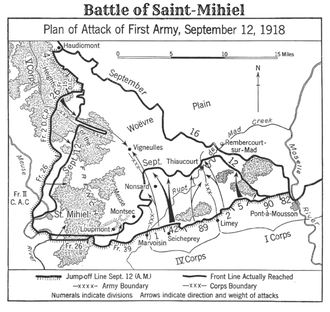
Captain Peck repeatedly requested combat assignment, which was finally granted at the end of March 1918, when he was transferred to the Marine Barracks Quantico, Virginia and subsequently sent to France. Captain Peck arrived to Brest, France on June 8th 1918 and finally joined 5th Marine Regiment on August 22nd 1918. Captain Peck was appointed Commanding officer of the 55th Company, 2nd Battalion and led his unit in the Battle of Saint-Mihiel during September, Captain Peck and the 5th Marine Regiment (Devil Dogs) fought alongside the Army 9th Infantry and pushed the Germans back from positions they had held since 1914.
|
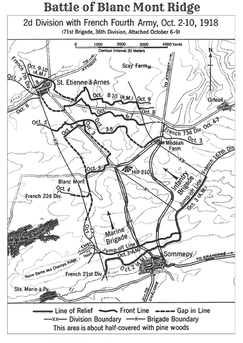
The next offensive was a strategic ridge at Monte Blanc that the French had been unable to retake during the last 4 years of fighting. The ridge gave the Germans a 50 mile view of French territory in every direction. Captain Peck’s and his Marines objective was Hill 210. Captain Peck was wounded by the effects of combat gas during the Battle of Blanc Mont Ridge on October 4th 1918, he was relieved by another future General Officer, Lemuel C. Shepherd. For his service in the Great War Captain Peck was awarded the Victory Medal with St. Mihiel and Aisne-Marne clasps. He would later be awarded the Purple Heart Medal for being wounded in action.
|
|
Captain Peck returned to his unit after his recovery and participated in the Occupation duties in Germany until June 25th 1919, when he was ordered to the United States. Upon his return he reported at Headquarters Marine Corps in Washington, D.C. and was assigned as an instructor in the School of musketry at Marine Barracks Quantico, Virginia. |
|
Captain Peck attended and graduated the Army's Chemical Warfare school when he returned to the United States and in June 1924, he was assigned to the Marine Corps School at Quantico as a Student within the Field Officers Course. Upon his graduation, he served as an instructor at Marine Corps School until 1927, when he was assigned for studies to Command and General Staff College at Fort Leavenworth, Kansas. He graduated the following year and returned as an instructor to Marine Corps School at Quantico.
|
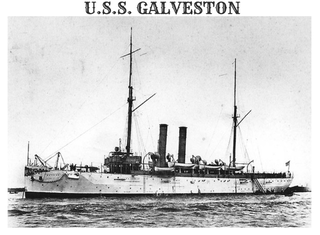
While served in this capacity, Peck was promoted to Major on January 2nd 1929. His sea duties came in May 1929, when he was appointed Squadron Marine Officer aboard the Protected Cruiser U.S.S. Galveston and sailed for Nicaragua, where he participated as an Intelligence officer in the Nicaraguan Electoral mission until June 1931.
|
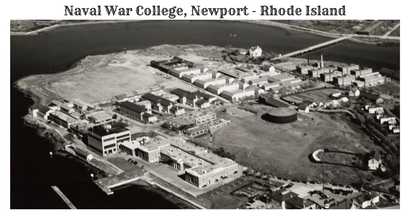
Major Peck’s assignment was again with the well known Marine Corps School at Quantico, where he served again as an Instructor. While served there, he was promoted to Lieutenant Colonel on May 29th 1934. Lt. Col. Peck was ordered to the Naval War College at Newport, Rhode Island in June 1935 and graduated one year later. As an experienced teacher, he remained at Naval War College as an Instructor until June 1938, when he was assigned to the Fleet Marine Force in San Diego. Peck was promoted to full bird Colonel on February 1st 1939.
|
WORLD WAR II
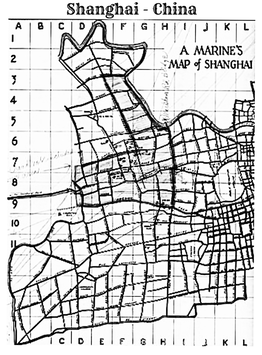
Colonel Peck was appointed Commanding officer of the 4th Marine Regiment (China Marines) stationed in Shanghai, China to protect American citizens and property in the Shanghai International Settlement. Peck was commended for his work during his service in China by Commander in Chief, Asiatic Fleet, Admiral Thomas C. Hart and received Navy Commendation Medal.
|
|
|
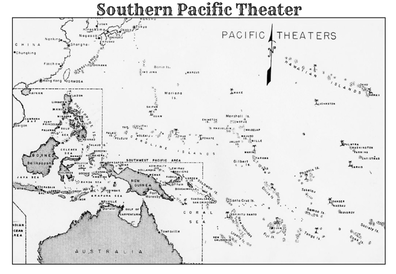
Colonel Peck was promoted
to Brigadier General in March 1942. He was subsequently transferred to the Southern Pacific theater and assigned as Assistant Chief of Staff for War Plans to the South Pacific area Commander, Vice admiral Robert L. Ghormley. Admiral Ghormley had been relieved by William Halsey Jr. in October 1942 and Peck remained on his staff. Brig. General Peck was subsequently participated in the planning of the allied advanced to the Central Solomon Islands for the upcoming New Georgia Campaign and flew from Pacific to Washington, D.C. in January 1943 to present the outline of the operation. |
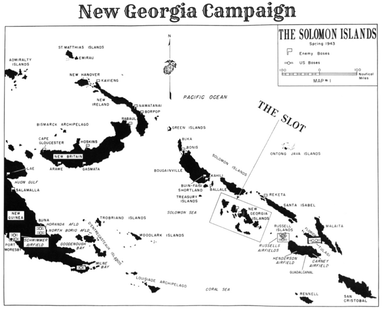
Brig General Peck also requested additional forces necessary to assault Japanese positions in the New Georgia Islands, but his plea has been rejected by the Joint Chiefs of Staff. In March 1943, he flew with admiral Turner for meeting at Pearl Harbor, where they introduced their plan to the USAFFE Commander, General Douglas MacArthur, who approve it. Brig. General Peck remained in Pacific until July 1943, when he was ordered to Washington, D.C. and appointed to Headquarters Marine Corps as Director of the Division of Plans and Policies. For his previous service in Pacific, Peck was decorated with Legion of Merit based on the recommendation made by admiral Halsey.
|
|
Brig. General Peck served in this capacity until January 1944, when he was promoted to Major General and appointed Assistant Commandant of the Marine Corps. Peck served in this capacity for the duration of the War and was relieved by Major general Allen H. Turnage at the end of July 1945.
|
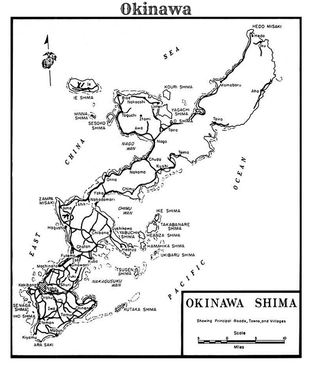
Major general Peck assummed the command of 1st Marine Division, which was stationed on Okinawa and was preparing for planned Invasion of Japan. However Surrender of Japan on August 15th 1945 had changed the plans and Peck with his 1st Division were sent to supervised the disarmament and repatriation of Japanese troops in North China in September of that year. Major General Peck and his troops met a great welcome from the local people, but one month later the activity of communists guerrilla units began to increase.
|
THE KUYEH INCIDENT
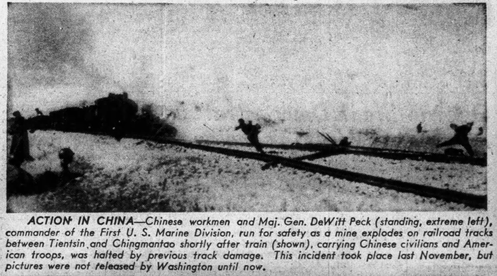
One of the more notable skirmishes between American and Communist forces became known as the Kuyeh Incident. On November 14, a train carrying General Peck, 7th Marine Regiment, and an inspection party consisting of Marines was fired on near the village of Kuyeh, while it was traveling from Tangshan to Chinwangtao. An indecisive battle ensued. For over three hours the Marines exchanged fire with the Communists, who were positioned around the village, about 500 yards north of the railroad tracks. Chinese fire from the village was so intense at one point the Americans called in air support. However, because the Marine aircraft could not clearly identify enemy targets, and because there was a risk of harming innocent civilians, permission to open fire was not given. Therefore, the aircraft flew over the Communists, but they did not actually fire on them. Later that day, a company from the 7th Marines was sent to reinforce the ambushed train. Men of the company found that the resistance had "melted away," so General Peck's train proceeded into Kuyeh after nightfall. There were no casualties among the Marines. Chinese casualties, if any, are unknown. On the next day, Peck's train was ambushed again in the same area as before. This time, the Chinese had torn up about 400 yards of the railroad tracks, and the workers sent to fix them had been killed or wounded by land mines. Since it was expected that repair work on the railroad would take at least two days, Peck returned to Tangshan and boarded an observation plane, in order to fly to Chinwangtao.
|
Major General Peck remained in China until the beginning of June 1946, when he
returned to the United States. For his service there, he was decorated with his second Legion of Merit and also received the Chinese Order of the Cloud and Banner, 2nd Class by Chiang Kai-shek. After a few months of medical leave in the United States, Peck retired from the Marine Corps on November 5th 1946. |
|
United States Marine Corps Major general DeWitt Peck died on January 13, 1973 at the Andrews Air Force Base Hospital, Maryland. he is buried at Arlington National Cemetery together with his wife Elizabeth Davis Peck.
|

